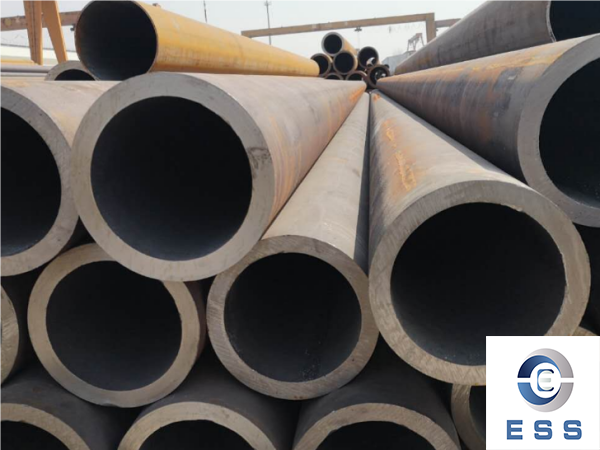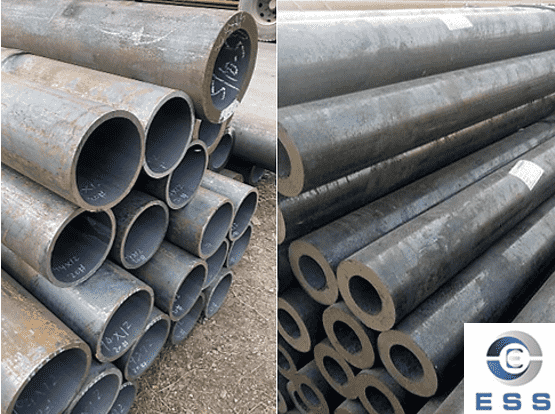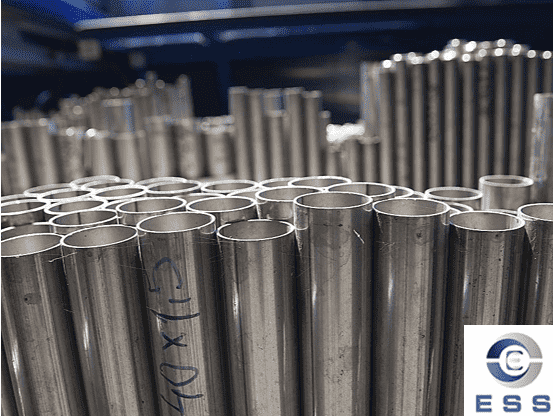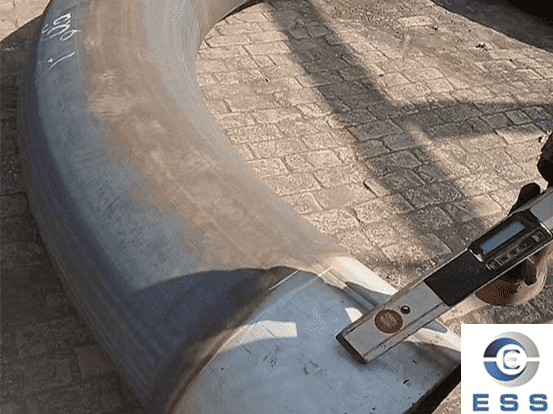Large diameter steel pipe storage to prevent rust skills
Large-diameter seamless steel pipe, the main production process is hot-rolled large-diameter seamless steel pipe and heat-expanded diameter seamless steel pipe, the maximum size of heat-expanded seamless steel pipe is 325mm-1220mm and the thickest is 200mm, heat-expanded seamless steel pipe can produce non-national standard The size of the thermal expansion seamless pipe is what we often call the thermal expansion pipe. A steel pipe with a relatively low density but a strong shrinkage is used to expand the diameter of the pipe by cross rolling or drawing. A rough pipe finish rolling process. In a short period of time, the steel pipe can be thickened to produce non-standard and special type seamless pipes with low cost and high production efficiency, which is the development trend of the international pipe rolling field.

GB5310 (seamless steel pipes for high-pressure boilers) stipulates that steel pipes with an outer diameter greater than or equal to 76mm and a wall thickness ≥ 14mm should be subjected to a Charpy V-type longitudinal impact test at 20°C; the average value of the impact energy of the three samples should not be low At 40J, the impact energy of a sample is allowed to be lower than the average value, but not lower than 70% of the average value. For steel pipes with an outer diameter > 219.1mm and a wall thickness ≥ 25mm, the transverse mechanical property test can be used instead of the longitudinal mechanical property test. Carry out the Charpy V-type transverse impact test at 20°C, and it is more convenient to do the transverse mechanical property test for large-diameter pipes.
1. Choose the right storage environment
The storage environment of large-diameter steel pipes is one of the important factors affecting the rust of steel pipes. Generally speaking, storing steel pipes in a dry, ventilated, and non-corrosive gas environment can effectively reduce the possibility of steel pipes rusting. In addition, if it is stored for a long time, a closed storage method can be used, which can further reduce the risk of steel pipe rusting.
2. Reasonable packaging
When storing large-diameter steel pipes, it is also important to choose a suitable packaging method. It is best to use sealed packaging to avoid contact between the steel pipe and the outside air. In addition, some anti-rust film, anti-rust oil, anti-rust agent, etc. can be used in packaging, which can effectively prolong the service life of the steel pipe and reduce the risk of rust.
3. Regular inspection and maintenance
Regular inspection and maintenance are also very important when storing large diameter steel pipes. Once rust is found on the surface of the steel pipe, measures should be taken in time to deal with it. First of all, the surface of the steel pipe should be cleaned with a cleaning agent to remove dirt and rust on the surface. Antirust treatment can then be carried out to ensure that the surface of the steel pipe will not rust again.
4. Other anti-rust tips
In addition to the above tips, there are some other rust prevention tips that can help reduce the risk of steel pipe rusting. For example, before storing the steel pipe, the surface of the steel pipe can be galvanized, painted, etc., and these methods can effectively resist the possibility of the surface of the steel pipe being oxidized. In addition, when storing steel pipes, you should also avoid direct contact between the steel pipes and other metal materials, so as to avoid electrochemical reactions between different materials.
To sum up, the storage of large-diameter steel pipes to avoid rust can be achieved by choosing a suitable storage environment, reasonable packaging methods, regular inspection and maintenance, and other anti-rust techniques. As long as we take correct antirust measures, the service life of steel pipes can be effectively extended, and at the same time, more benefits can be brought to industrial production.













 Eastern Steel Manufacturing Co.,Ltd not only improve product production and sales services, but also provide additional value-added services. As long as you need, we can complete your specific needs together.
Eastern Steel Manufacturing Co.,Ltd not only improve product production and sales services, but also provide additional value-added services. As long as you need, we can complete your specific needs together.










